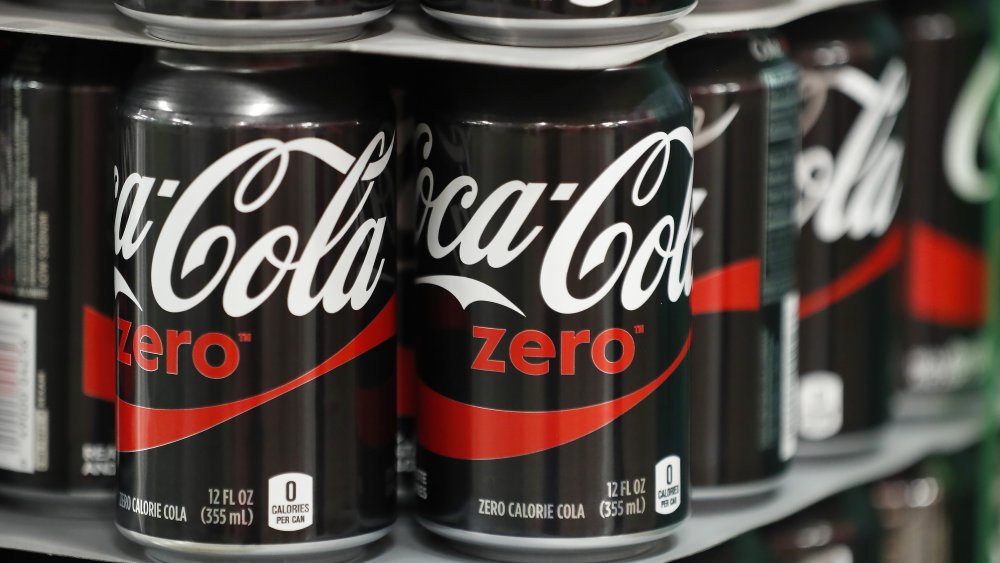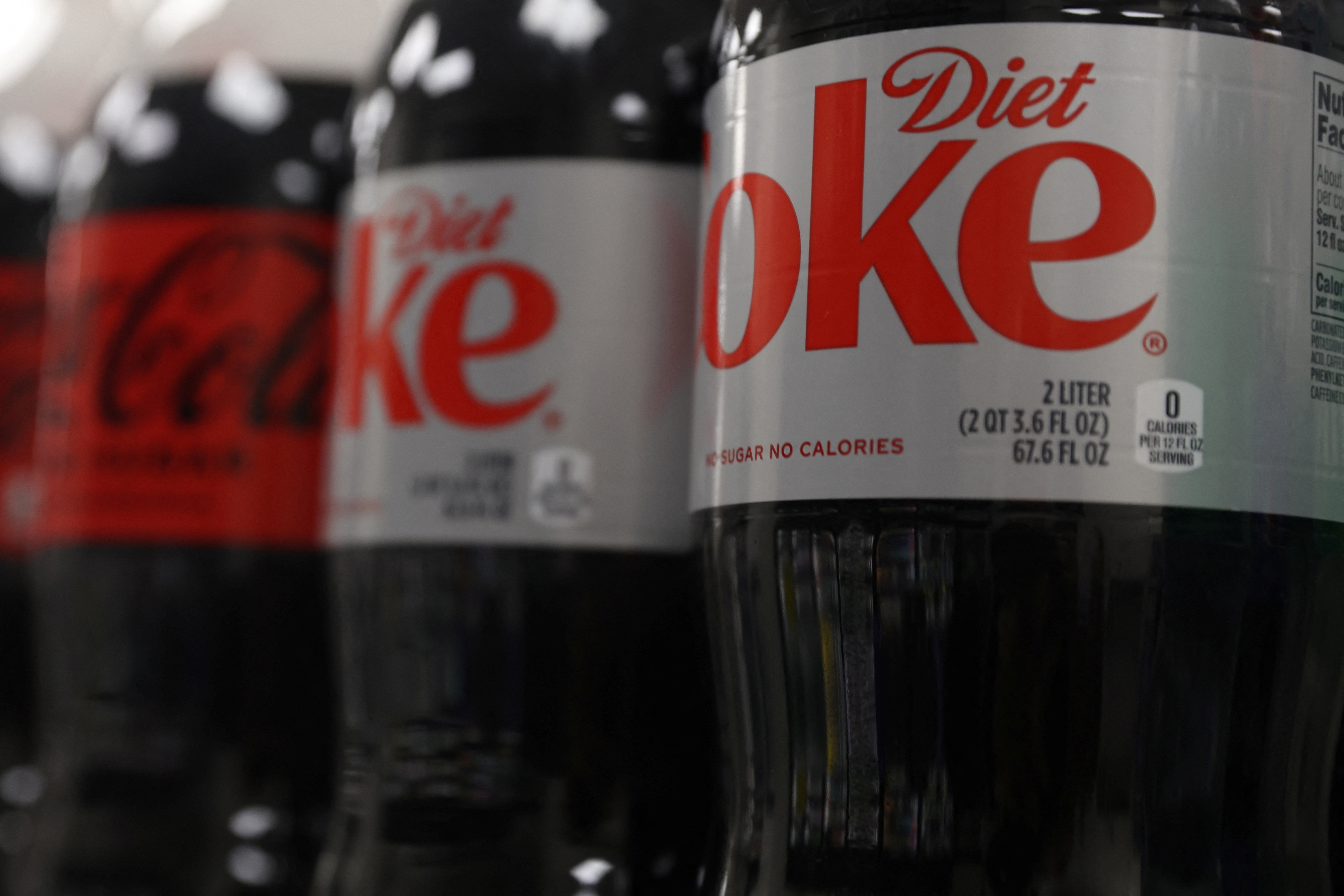Coke Zero is not considered ‘good’ for you but provides a no-calorie alternative to regular Coke. It appeals to those seeking the Coke taste without sugar.
Coca-Cola Zero Sugar, often called Coke Zero, mimics the classic Coca-Cola flavor without using sugar, which can be favorable for those trying to limit their sugar intake or manage calories. Despite its lack of sugar and calories, Coke Zero includes artificial sweeteners and additives, the health impacts of which remain a topic of debate among health experts.
People often opt for Coke Zero as a guilt-free way to enjoy a sweet, fizzy beverage; however, it’s not a health drink nor does it provide nutritional benefits. As part of a balanced diet, occasional consumption of Coke Zero might be a preferable choice for soda lovers, but water or other natural, sugar-free drinks are healthier options for regular hydration.
Coke Zero’s Popularity Surge
Welcome to the fizzy phenomenon sweeping across the globe – Coke Zero’s rise to fame. This bubbly beverage has won hearts with its promise of zero sugar and full flavor. Let’s uncork the secrets behind its sudden surge in popularity.
Marketing Myths Vs. Nutritional Facts
It can be hard to separate truth from advertising tactics. With Coke Zero, the allure comes from clever marketing but let’s look at the facts.
- No sugar doesn’t mean no calories.
- Coke Zero has artificial sweeteners like aspartame and acesulfame potassium.
- Some studies suggest these sweeteners may impact appetite and metabolism.
| Nutrient | Amount per 12 fl oz |
|---|---|
| Calories | 0 kcal |
| Total Fat | 0 g |
| Sugars | 0 g |
Consumer Shift Towards Sugar-free Alternatives
People are choosing healthier lifestyles. This trend explains why drinks like Coke Zero gain more fans every day.
- Consumers are more health-conscious now.
- Many want to enjoy sodas without sugar’s downsides.
- Taste expectations stay high, even with sugar out of the picture.
This shift isn’t just a fad. It reflects a deep-seated desire for balance – enjoying life’s pleasures while taking care of our health.

The Ingredient Breakdown
When sipping away on a can of Coke Zero, do you ever stop to ponder what’s actually inside? A shining beacon for those dodging sugar, Coke Zero promises the iconic Coca-Cola taste with zero calories and no sugar. But what ingredients work behind the scenes to deliver this experience? Let’s decode the can and dive into the components that make up this popular beverage.
Artificial Sweeteners: Safe Or Risky?
Coke Zero harnesses the sweetness power of artificial sweeteners. The main one used is aspartame, partnered with acesulfame potassium. These sugar substitutes keep the calorie count down while maintaining sweetness levels. But their safety often sparks debate.
- Aspartame is one of the most researched additives, approved by many health authorities.
- Acesulfame potassium also has clearance from the FDA for moderate consumption.
While both are generally recognized as safe, some studies suggest potential health impacts when consumed in large quantities. Always remember to enjoy artificially sweetened drinks in moderation.
Other Additives In Coke Zero
Beyond sweeteners, Coke Zero includes a mix of other components:
| Ingredient | Function | Concerns |
|---|---|---|
| Caramel Color | Provides the signature brown hue | Contains 4-MEI, a compound with controversial health effects |
| Phosphoric Acid | Adds a tangy flavor and preserves freshness | Linked to weaker bones in excessive amounts |
| Potassium Benzoate | Acts as a preservative | Potential to form benzene, a carcinogen, under certain conditions |
| Caffeine | Provides a mild stimulant effect | May cause jitteriness or sleep disruption if consumed in excess |
Each of these additives serves a purpose, from enhancing flavor to extending shelf life. Nevertheless, they are not without their controversies. It’s crucial to note that these potentially harmful effects typically arise from consumption levels much higher than what is found in a can of Coke Zero.
Understanding these ingredients can inform your choices and help you enjoy drinks like Coke Zero wisely. Always check with health professionals if you have concerns related to these additives.
Health Impact Assessment
When thirst strikes, many opt for Coke Zero, but is it a wise choice? This section offers a deep dive into the effects of Coke Zero on our bodies, breaking it down into immediate pleasures and long-term health implications.
Short-term Benefits And Pleasure
Coke Zero, known for no calories and sweet taste, tickles the taste buds without the guilt of sugar. Here’s a quick look at its perks:
- Satisfies soda cravings without sugar intake.
- Zero calories mean no immediate weight gain.
- May provide a brief caffeine boost in energy levels.
Long-term Effects On Health
Beyond the immediate gratification, it’s crucial to assess how Coke Zero might impact your health over time.
| Ingredient | Potential Long-Term Impact |
|---|---|
| Artificial sweeteners | May alter gut bacteria and affect metabolism. |
| Caffeine | Could disrupt sleep patterns and lead to dependency. |
| Acids | Potential risk of tooth enamel and bone density loss. |
| No sugar | Reduces risks of tooth decay and high blood sugar. |
While zero-sugar and no calories seem promising, balance is key. Regular consumption could pose risks and impact overall well-being.

Comparing Diet Sodas
Choosing a diet soda can be a puzzle. With so many brands, which is best for you? Let’s look at Coke Zero and Diet Coke. Then, see how other brands stack up.
Coke Zero Vs. Diet Coke
Coke Zero and Diet Coke both claim to offer a calorie-free cola experience. But they’re not twins. Coke Zero aims to mirror the classic Coke flavor. Diet Coke brings its own unique taste to the table.
| Coke Zero | Diet Coke |
|---|---|
| Closer to original Coke flavor | Lighter, different taste |
| Uses flavor additives for mimicry | Has a unique blend of flavors |
| Contains less caffeine | More caffeine content |
Both are free from sugar and calories. They have artificial sweeteners. Some experts say these are not the best choice for a healthy diet.
How Other Brands Compete
Other diet sodas join the battle for your fridge space. Let’s compare some popular options:
- Pepsi Max: Also targets the full-flavor market, with its own loyal following.
- Dr Pepper Zero Sugar: Touts a unique blend of 23 flavors without sugar.
- Sprite Zero Sugar: Offers a lemon-lime twist, appealing to non-cola drinkers.
These alternatives may have different sweeteners or flavor notes. An ingredient rundown can reveal what’s inside.
| Brand | Sweeteners Used | Unique Selling Point |
|---|---|---|
| Pepsi Max | Aspartame, Acesulfame K | Max taste, no sugar |
| Dr Pepper Zero Sugar | Aspartame | 23 flavor blend |
| Sprite Zero Sugar | Aspartame, Acesulfame K | Refreshing citrus |
Expert Opinions And Research
Delving into the expert opinions and research on Coke Zero can be eye-opening. Is this popular sugar-free soda just what you need for a guilt-free drink? Here’s what the professionals and studies have to say:
Dietitians Weigh In On Coke Zero
Nutrition experts tackle the Coke Zero query: does it fit into a healthy lifestyle?
- No sugar, no calories: Dietitians confirm Coke Zero contains neither.
- Artificial sweeteners: These may have metabolic effects. Advice varies.
- Hydration options: Water is still the gold standard for experts.
Analysing Recent Studies
Recent research sheds light on diet sodas:
| Study | Focus | Outcome |
|---|---|---|
| 2021 Health Journal | Long-term effects of artificial sweeteners | Mixed results on metabolic impact |
| 2022 Nutrition Review | Zero-calorie sodas and appetite | Some evidence suggests increased cravings for sweets |
These findings are crucial in understanding how Coke Zero might affect your health.

Making Informed Choices
When selecting drinks, knowing what’s in them aids our decision-making. Coke Zero offers a sweet taste with zero calories. Yet, is it a wise choice for a health-focused lifestyle? Let’s delve into the balance of flavor and wellness.
Balancing Taste And Well-being
Coke Zero is crafted to mimic the classic Coke flavor. It achieves this with artificial sweeteners. These sweeteners have no calories. This suggests a better option for those managing calorie intake.
Still, ingredients in Coke Zero have sparked debates. Health experts question the long-term effects. Is a calorie-free drink truly beneficial? Understanding what’s inside can guide us. Below is what a can of Coke Zero contains:
| Ingredient | Purpose |
|---|---|
| Carbonated Water | Base of the drink |
| Artificial Sweeteners (Aspartame, Ace-K) | Zero-calorie sweetness |
| Caramel Color | Gives the classic cola color |
| Caffeine | Adds a mild stimulant effect |
| Phosphoric Acid | Enhances the soda’s tartness |
Alternative Beverages For Health Consciousness
Seeking healthier drink options is key. There are many beverages to consider. Water always stands as the top choice. It quenches thirst and sustains our body without any additives.
Fruit-infused waters and herbal teas are excellent picks. They offer natural flavors and various health benefits. They are free from artificial sweeteners and calories. The list below highlights some great alternatives:
- Sparkling water with a splash of fruit juice
- Unsweetened almond milk
- Herbal teas without added sugar
- Homemade smoothies with fresh ingredients
Every drink choice impacts our health. Opting for natural alternatives can support a healthy lifestyle. Always read labels to make the best choice for your body.
Frequently Asked Questions Of Coke Zero Good For You
Is Coke Zero Calorie-free?
Coke Zero is indeed calorie-free, making it a popular choice among dieters. However, it is important to consider the artificial sweeteners used in these products, which can have other health effects.
Does Coke Zero Contain Sugar?
No, Coke Zero does not contain sugar. It uses artificial sweeteners like aspartame and acesulfame potassium to mimic the sweet taste without the added calories.
Can Coke Zero Affect Weight Loss?
Coke Zero can be part of a weight loss diet if consumed in moderation. However, it’s not a weight loss product and excessive consumption may hinder your efforts due to its sweet taste potentially increasing sugar cravings.
Is There Caffeine In Coke Zero?
Yes, Coke Zero contains caffeine. The amount of caffeine is similar to that of regular Coke, which can be around 34 mg per 12 oz serving.
Conclusion
Navigating the world of zero-calorie sodas can be tricky. While Coke Zero offers a sugar-free alternative, it’s not a health drink. Moderation is key, as with all processed beverages. Carefully consider your dietary choices and consult a nutritionist for personalized guidance.
Remember, balance is essential for a healthy lifestyle.

